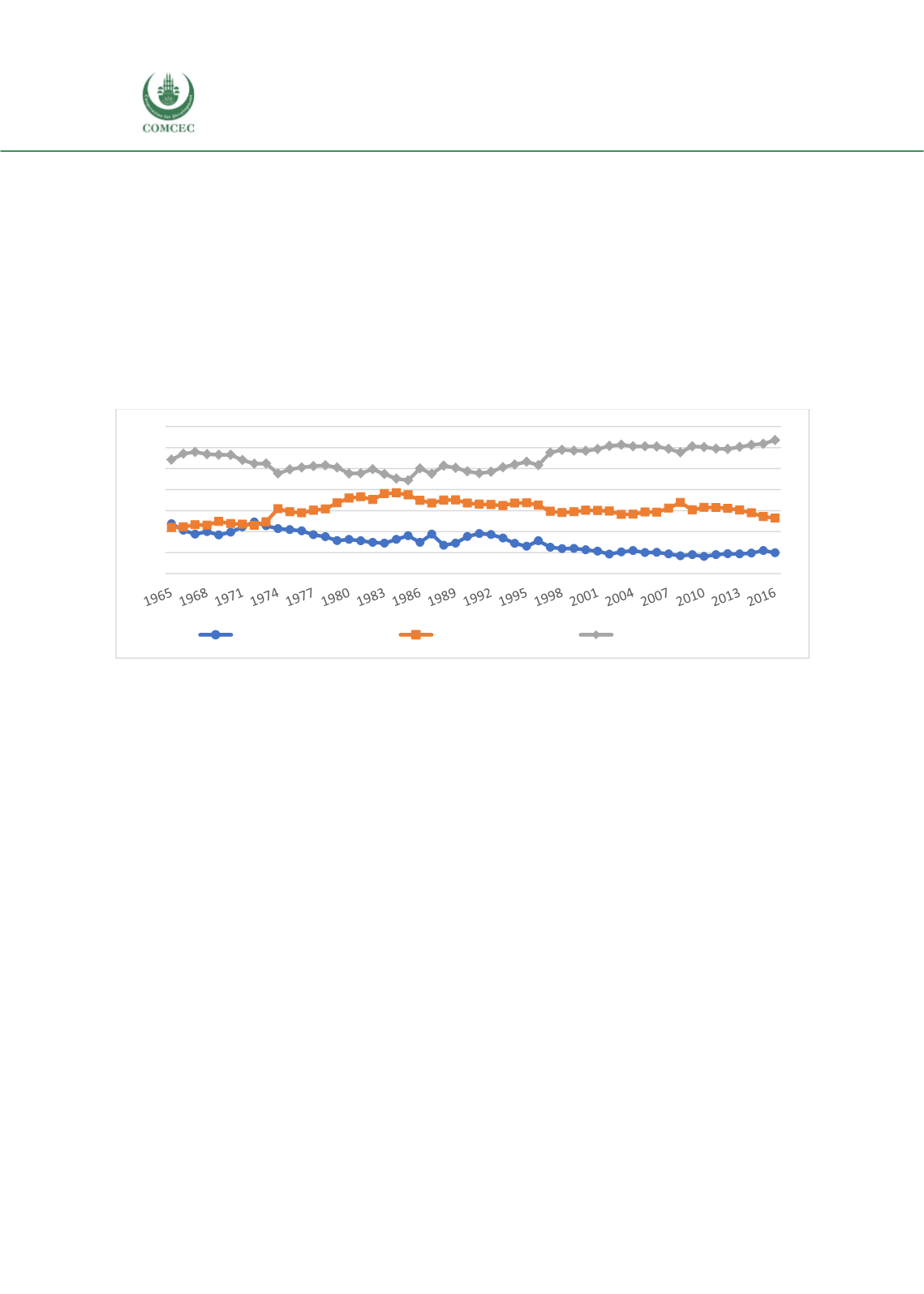

Analysis of Agri-Food Trade Structures
To Promote Agri-Food Trade Networks
In the Islamic Countries
102
4.3.
Tunisia
Agriculture is historically very important in Tunisia. Despite its decline in terms of relative GDP,
the agricultural sector plays crucial economic and social roles. Indeed, agriculture represents
10% of overall GDP (Figure 43) and about one employee in six works in this sector. However, its
driving effects are really important. For example, the agri-food sector arrives first in terms of
investments in all industrial sub-sectors, with a share of more than 25% in 2015. Agriculture is
also a major supplier of the tourism sector, which is very important for the overall economy. In
addition, the development of agri-food production is necessary to ensure food security and
promote households’ income in rural areas (that represent 35% of the overall population), in
which poverty is concentrated.
Figure 43: Sectoral Breakdown of GDP in Tunisia, 1965-2016, Percent
Source: World Development Indicators, the World Bank, April 2018.
In the development strategy 2016-2020, Tunisian authorities have planned to modernize the
agricultural sector, support research and development and develop human resources in order
to promote the economic importance of the sector and ensure food security.
In addition to the sustainable management of natural resources, the development of water
infrastructure, the incentives to private operators included in the new investment law, new
trade liberalization agreements are expected to be signed. The negotiations for the Deep and
Comprehensive Free Trade Area with the European Union started in 2016. This agreement will
liberalize trade in agri-food products with the European Union, which is the main partner of
Tunisia (more than two thirds of trade flows). The conclusion of this agreement will be
associated with major reforms linked to this sector (technical, sanitary, phytosanitary and
health standards; subsidies and government support, competition framework, public
procurement, etc.)
Agricultural Trade Performance
Table 25reports the statistics about trade performance of Tunisia, with a focus on agricultural
products. It appears that the share of exports of agricultural products does not exceed on
average 10% (except for 2015, with an exceptional performance of 14.5%). In addition, the
share of imports of agricultural products varies between 10% and 12%. Throughout the period
2005-2016, the trade balance of the Tunisian economy and that of the agricultural sector are in
deficit. It was slightly positive only in 2006.
0%
10%
20%
30%
40%
50%
60%
70%
Agriculture (% of GDP)
Industry (% of GDP)
Services (% of GDP)
















